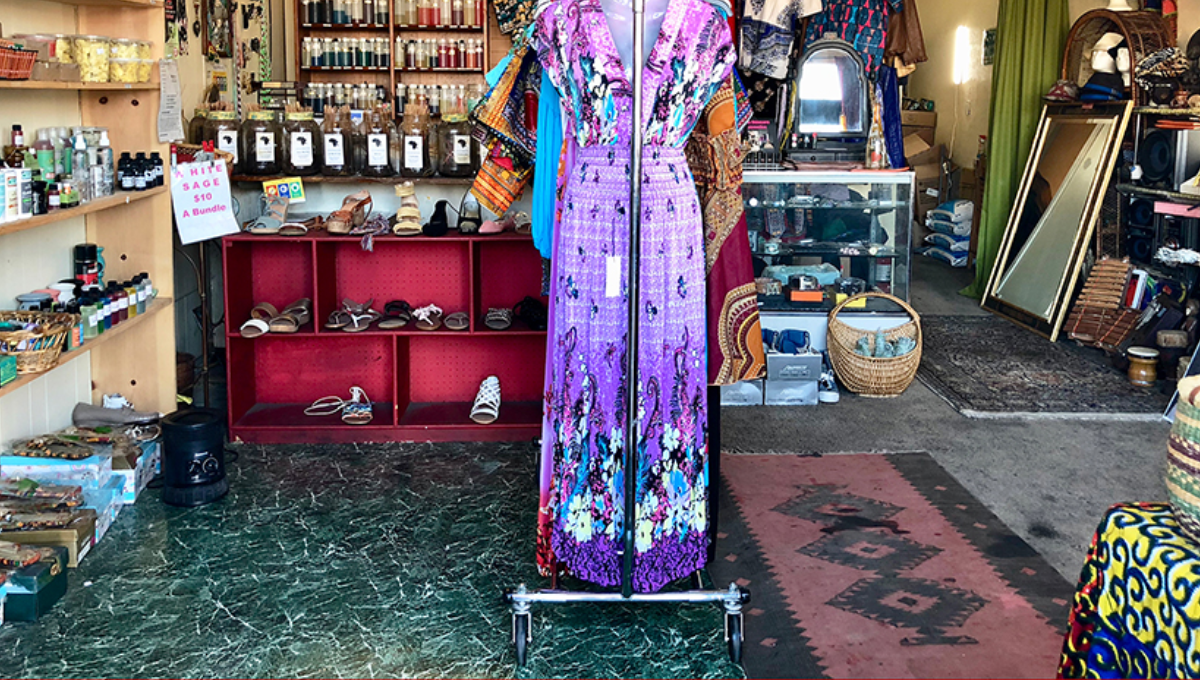Business
African imports wholesale That Are Captivating the Global Market
Published
6 months agoon
By
IQnewswire
Introduction
Africa is a land of rich culture , good resources and of unique quality products that have high demand all over the globe. With handmade crafts to organic food, African imports have taken centre stage in the international market. Wholesale African imports offer a profitable business for retailers, distributors and business owners who seek to buy original African products at the best possible prices.
Why Import African Goods Wholesale?
African imports wholesale are generously endowed with high quality products, which are attractive to the worldwide consumers. Some of the reasons African goods importation into the country as wholesale business makes sense include the following:
- Unique and Authentic Products – The directors of African goods are also chiefly demanded, including handmade crafts, textiles, and art that hold cultural values and have an artisanal component.
- Growing Global Demand – African fashion, beauty products, and organic foods are increasingly popular in Europe and North America and also in Asia.
- Competitive Pricing – Wholesale imports enable companies to consume at fewer costs on bulky purchase, thereby making higher profits.
- Supporting Local Economies – Purchasing African goods will assist in support to artisans and farms around the continent, and small African businesses.
- Diversification of Product Offerings – Retailers will be able to appeal to new markets by selling uncommon African products that are less popular in the mainstream markets.
Popular African Products for Wholesale Import
1. African Fashion and Textiles
Africa is famous for juicy materials and traditional dresses. Wholesale fashion items which are most demanded are:
- Ankara/African Print Fabrics –Brightly colored, printed materials known as wax prints that can be used in clothing, accessories and decorations in homes.
- Kente Cloth – An African cloth made of Ghanaian handwoven silk and cotton and usually worn on special occasions.
- Dashikis – In West Africa loose-fitting tunics were found.
- African Jewelry –Natural beaded necklaces, bracelets and earrings.
2. Handmade Crafts and Art
African craftspeople make beautiful handcrafted products ideal as gifts or decorations in the home:
- Wooden Sculptures and Masks – Popular carvings made in such states as Nigeria, Kenya, and Tanzania.
- Baskets and Woven Goods –Rwanda, Zimbabwe and South African handwoven baskets.
- Pottery and Beadwork –Pieces of decoration, of complicated design.
3. Natural Beauty Products
Plenty of natural ingredients commonly used in the cosmetic and skin care industries can be spotted in plenty in Africa:
- Shea Butter – Sourced from West Africa, used in moisturizers and hair care products.
- Black Soap – A traditional cleansing soap made from plantain skins and cocoa pods.
- Argan Oil – A premium oil from Morocco used in hair and skincare.
- Marula Oil – Extracted from the marula fruit in Southern Africa, known for its anti-aging properties.
4. Organic Foods and Spices
There is increased profile on African food and the import of wholesale food is high:
- Coffee and Cocoa – Ethiopia and Ghana are major producers of high-quality coffee and cocoa beans.
- Superfoods (Moringa, Baobab, Hibiscus) – Nutrient-rich powders and teas.
- Spices (Pepper, Cloves, Cinnamon) – Sourced from Zanzibar, Madagascar, and other regions.
- Dried Fruits and Nuts – Cashews from Mozambique, dates from North Africa.
5. African Home Decor
Original works of decorations which impart the flavour of the exotic to the interiors:
- Animal Print Textiles – Zebra, leopard, and giraffe patterns for upholstery and cushions.
- Handwoven Rugs and Mats – Made from natural fibers like sisal and jute.
- Decorative Bowls and Statues – Handcrafted from wood, brass, and clay.
How to Source African Imports Wholesale
1. Finding Reliable Suppliers
- Trade Fairs and Exhibitions – Events like Cairo International Fair and Africa’s Big Seven connect buyers with suppliers.
- Online B2B Marketplaces – Platforms like AfriTrade, Alibaba, and TradeKey list African wholesalers.
- Direct Sourcing from Manufacturers – Visiting African countries to establish direct partnerships with artisans and cooperatives.
2. Verifying Supplier Credibility
- Enquire on business licenses and certification.
- Ask samples before ordering a bulk of goods.
- Surf the Internet and read reviews, testimonials submitted by other purchasers.
3. Understanding Import Regulations
- Customs Duties and Taxes – Find out research tariffs on importation in your country.
- Product Compliance – Make sure that goods are safe and of quality (e.g., FDA, EU regulations).
- Logistics and Shipping – Select credible freight forwarders that have experience in African exports.
Challenges of Importing African Goods Wholesale
Although import business in Africa is lucrative, it is accompanied by a number of challenges:
- Logistics and Shipping Costs – The major cost is transport because the infrastructures are not developed in certain areas.
- Quality Control – Unreliable products in quality unless the suppliers are well screened.
- Payment Risks – Suppliers who are frauds might require advanced payment without delivery of goods.
- Political and Economic Instability – There is a political and economic instability because there are some African nations experiencing trade restrictions and currency fluctuations.
Tips for Successful African Wholesale Importing
- Start Small – Try the market by placing small orders and then growing larger when conditions are satisfied.
- Establish Good Relations with Suppliers – Ensure there is good communication and negotiate on good terms.
- Be Trendy – Ensure to be abreast of the trending African products in the international markets.
- Ensure Secure Payment Procedures – Escrow or letters of credit will eliminate the chances of any fraud.
- Market Effectively – Sell not only the functionality of African products but also the cultural and moral appeal of the products in marketing.
Conclusion
Wholesale African Immigration is a business venture that has very numerous possibilities that can be exploited by those businessmen who seek to diversify their products. Between fashion and crafts, natural beauty products, and organic foods, Africa has a treasure trove of unique products that can appeal to the global customer base.


Search Engine Optimization Made Simple: How SEOWizard in Dublin Combines SEO and Web Design for Success

Why Successful Brands Need Strong Brand Management and Reliable Data Connectors

Unlocking the Future: A Comprehensive Guide to eSIM in Australia

The Truth About Bed Bug Cures: Heat vs. Hype

What Are the VAT Exemption Policies for Education Providers?

Common Misconceptions About Prenuptial Agreements — Explained

Beyond the Bouquet: Why Modern Men Choose Preserved Roses for a Lasting Impact

Inside the Algorithm: How Strategic Views Services Drive Global News Narratives

Repair Corrupted or Broken Photos with Photo Repair Online Software

What Mobility Scooter Owners Should Check Every Month

Revolutionizing Healthcare: The Emergence of AI-Driven Analytics

Carol Kirkwood’s Journey: Her Real Age, Husband, Career, and More

How Machine Learning and AI are Redefining the Future?

Aliza Barber: Meet Lance Barber’s Wife, Age, Life, Profile, Career and Net Worth

Evelyn Melendez: Jordan Knight’s Wife Bio, Marriage, Family, Career and Net Worth

Body Positivity and Bodycon: Embrace Your Shape with Homecoming Dresses

Ilan Tobianah Biography: Family, Marriage, Lifestyle, Career and Net Worth

Who was Alice Marrow? Everything to Know About Ice-T’s and His Mother

King Von’s Autopsy Report: The Truth Behind the Tragic Death

Meet Otelia Cox: The Supportive Wife of Tony Cox – A True Fairy Tale Romance

Search Engine Optimization Made Simple: How SEOWizard in Dublin Combines SEO and Web Design for Success

Why Successful Brands Need Strong Brand Management and Reliable Data Connectors

Unlocking the Future: A Comprehensive Guide to eSIM in Australia

The Truth About Bed Bug Cures: Heat vs. Hype

What Are the VAT Exemption Policies for Education Providers?

Common Misconceptions About Prenuptial Agreements — Explained

Beyond the Bouquet: Why Modern Men Choose Preserved Roses for a Lasting Impact

Inside the Algorithm: How Strategic Views Services Drive Global News Narratives

Repair Corrupted or Broken Photos with Photo Repair Online Software

What Mobility Scooter Owners Should Check Every Month
Category
Trending
-

 Health2 years ago
Health2 years agoRevolutionizing Healthcare: The Emergence of AI-Driven Analytics
-

 News6 months ago
News6 months agoCarol Kirkwood’s Journey: Her Real Age, Husband, Career, and More
-

 Technology2 years ago
Technology2 years agoHow Machine Learning and AI are Redefining the Future?
-

 Celebrity2 years ago
Celebrity2 years agoAliza Barber: Meet Lance Barber’s Wife, Age, Life, Profile, Career and Net Worth






